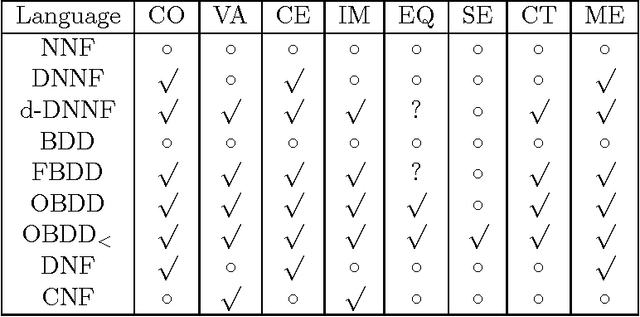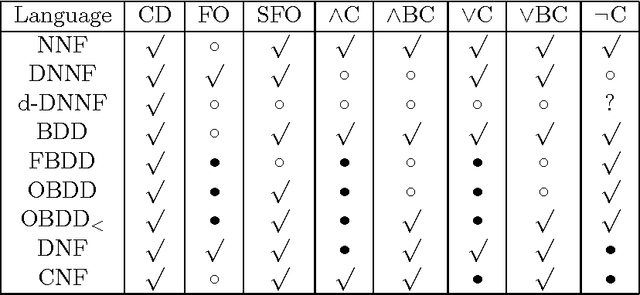The Language of Search
Paper and Code
Oct 12, 2011



This paper is concerned with a class of algorithms that perform exhaustive search on propositional knowledge bases. We show that each of these algorithms defines and generates a propositional language. Specifically, we show that the trace of a search can be interpreted as a combinational circuit, and a search algorithm then defines a propositional language consisting of circuits that are generated across all possible executions of the algorithm. In particular, we show that several versions of exhaustive DPLL search correspond to such well-known languages as FBDD, OBDD, and a precisely-defined subset of d-DNNF. By thus mapping search algorithms to propositional languages, we provide a uniform and practical framework in which successful search techniques can be harnessed for compilation of knowledge into various languages of interest, and a new methodology whereby the power and limitations of search algorithms can be understood by looking up the tractability and succinctness of the corresponding propositional languages.
 Add to Chrome
Add to Chrome Add to Firefox
Add to Firefox Add to Edge
Add to Edge